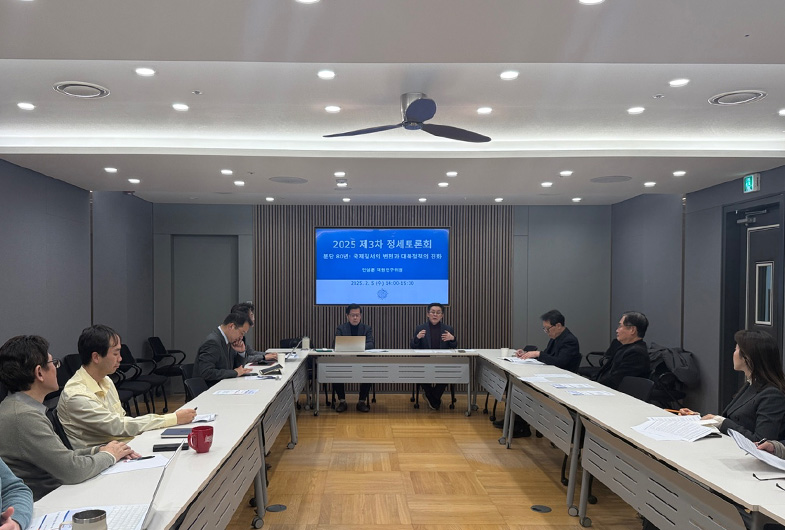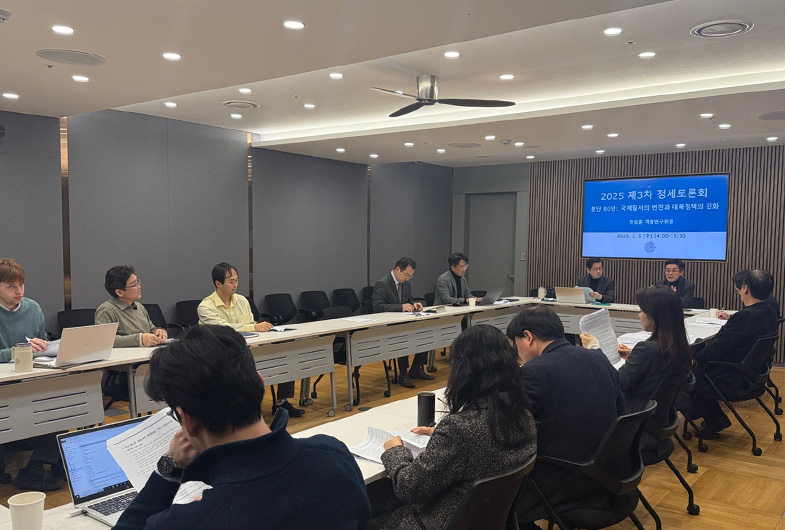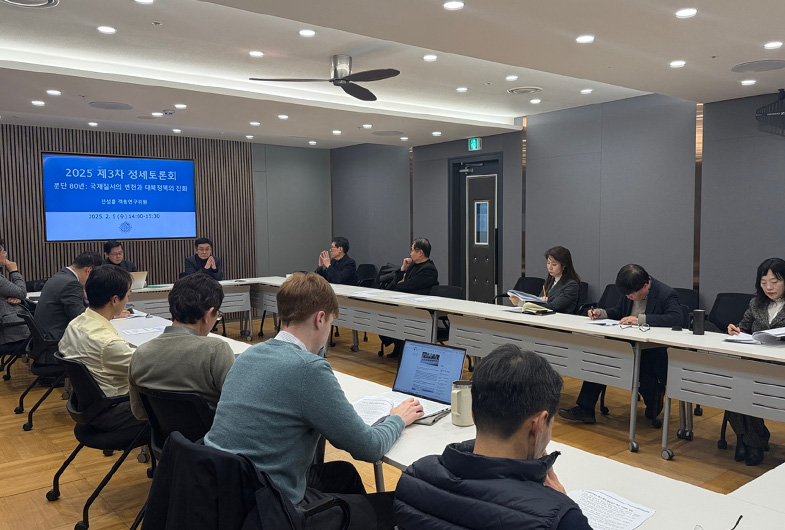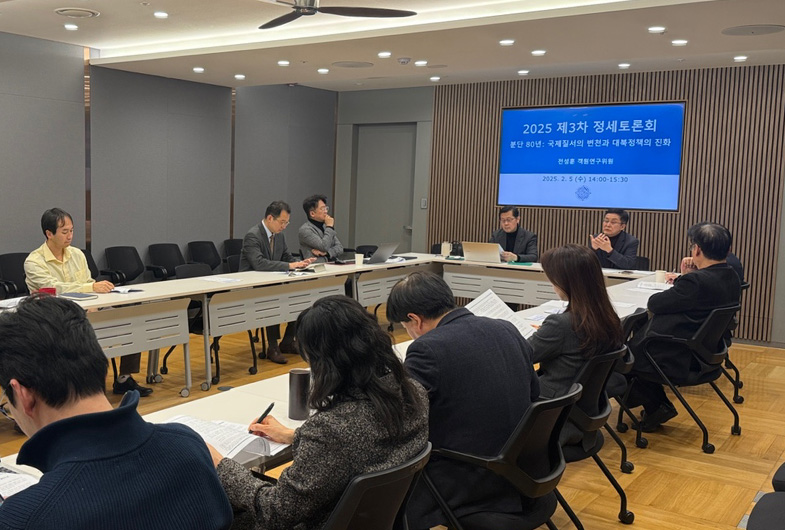On February 5, Visiting Research Fellow Seong-Hoon Jeon gave a presentation titled "80 Years of Division: The Evolution of International Order and North Korea Policy."
The policy debate was moderated by Seong Chang Cheong, Director of the Center for Korean Peninsula Strategy, and proceeded as follows:
The first-generation North Korea policy during the Cold War era was a confrontational approach based on Cold War thinking. It maintained a critical stance toward both the North Korean regime and its people, considering the regime, its citizens, and its military as a collective adversary. However, the second-generation North Korea policy in the post-Cold War era shifted toward engagement, aiming to induce North Korea to abandon its nuclear program through economic support and expecting political change. As a result, several significant agreements were reached between the two Koreas. However, since North Korea ultimately rejected and violated these agreements, the second-generation policy is now widely regarded as a failure.
The new North Korea policy, emerging from the recognition of the failure of engagement strategies, is taking shape in the context of a new Cold War era—an international order that will likely persist for at least a generation and structurally define inter-Korean relations. Given this reality, South Korea must respond swiftly to shifts in the geopolitical order and develop a North Korea policy suited to the new era. A dual-track approach that distinguishes between the North Korean regime and its people is necessary. While maintaining the concept of the North Korean military as the primary adversary, South Korea should simultaneously pursue targeted support and cooperation with North Korean civilians. This differentiated approach will be particularly relevant and effective amid the internal conflicts in North Korea resulting from Kim Jong-un’s "erasure of unification" policy.
The five inter-Korean summits held during the post-Cold War era focused dialogue primarily on the North Korean regime, aligning with the interests of both Korean governments but neglecting the interests of the people. This approach has led to significant problems, and thus, there is a need to move away from such summit diplomacy in the future.



